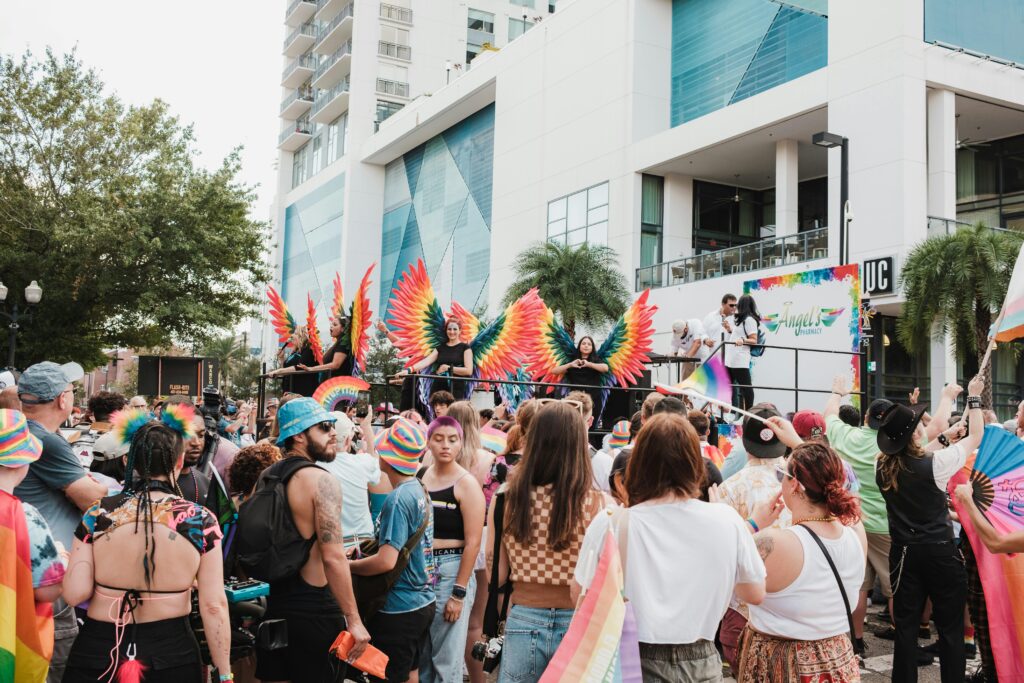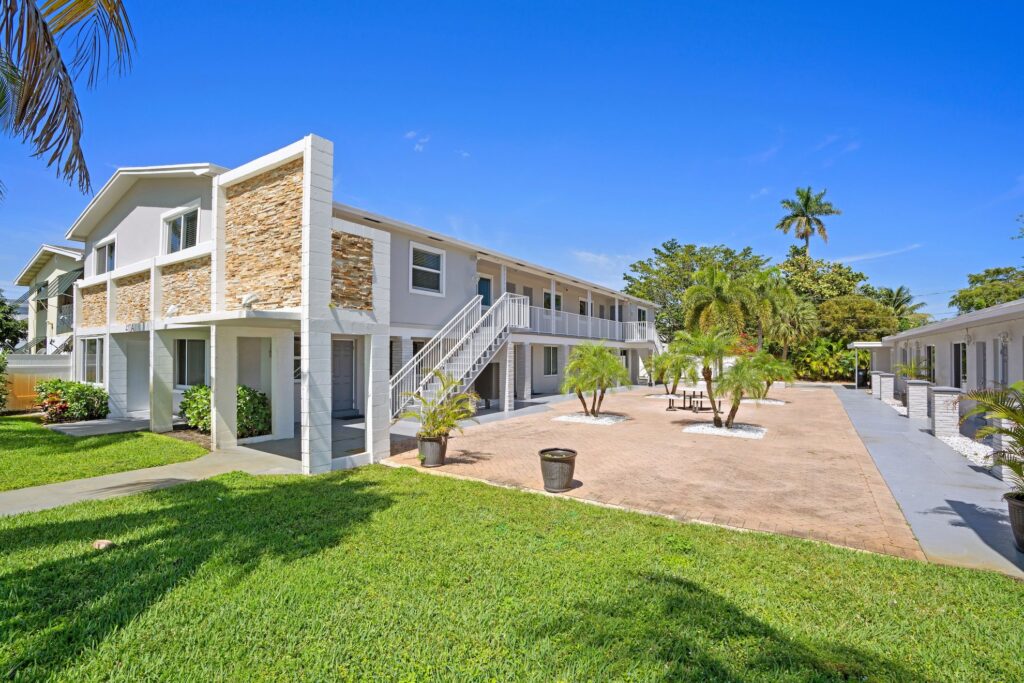Substance abuse and addiction are affecting millions of people across the United States, including in Florida. Fortunately, although there is no cure for addiction, it’s highly treatable with the right science-based interventions. Read on to explore some Florida substance abuse and addiction statistics which illustrate the growing problem of addiction in the United States.
Florida Drug Addiction Statistics
The following Florida addiction statistics are sourced from Florida Health and SAMHSA (Substance Abuse and Mental Health Services Administration).
In Florida, the rate of marijuana use over the past year among over-12s saw an increase from from 2017 to 2019. The average annual percentage of people using marijuana from 2017 to 2019 was 14.6% (approximately 2.7 million people), remaining below the national average of 16.2%.
During the same time frame, the rate of marijuana use disorder among this age group in Florida declined. The annual average for 2017 to 2019 was 1.3% (or around 232,000 people), matching the regional average and coming in lower than the national average of 1.6%.
Similarly, the rate of illicit drug use disorder in general did not change significantly, with an annual average of 2.7% (or roughly 490,000 people) from 2017 to 2019 – slightly below the national average of 2.9%.
On a single day in March 2019, among Floridians enrolled in substance use treatment, 51.0% were receiving treatment for drug issues only, 13.3% for alcohol issues only, and 35.6% for both drug and alcohol problems.

Florida Opioid Addiction Statistics
The percentage of over-12s in Florida reporting heroin use in the past year remained stable from 2017 to 2019. The average annual prevalence was 0.28% (about 51,000 people), similar to the national average.
There was no significant change in the annual average percentage of people aged 12 or older misusing prescription pain relievers between 2015 and 2019. From 2017 to 2019, the rate was 4.1% (or approximately 752,000 people), closely mirroring both the regional and national averages.
The rate of opioid use disorder among individuals aged 12 or older remained steady between these periods, with an annual average of 0.9% (or about 165,000 people) for 2017 to 2019, which is comparable to both the regional and national averages.
What Is Being Done About Addiction in Florida?
Florida is actively addressing the challenge of addiction through a multi-pronged approach that includes prevention, treatment, and recovery support services. These efforts aim to reduce the incidence of substance use disorders and support people on their recovery journeys. Here’s what’s being done:
- Enhanced access to treatment: Florida has increased funding and resources for addiction treatment programs, making it easier for people to access the help they need. This includes expanding capacity at treatment centers, increasing the availability of inpatient and outpatient services, and supporting telehealth services for remote access to care.
- Prevention and education programs: The state has launched several campaigns to raise awareness about the risks of drug abuse and the importance of early intervention. Schools and community organizations are actively involved in educating young people about the dangers of substance use and providing resources for prevention.
- Legislative actions: Florida has enacted laws aimed at reducing the availability of prescription opioids and other addictive substances. This includes implementing prescription drug monitoring programs to prevent doctor shopping and the over-prescription of painkillers, as well as stricter regulations on opioid prescriptions.
- Support for recovery: Florida offers various support services for individuals in recovery. This includes peer support groups, recovery coaching, and employment assistance programs designed to help people rebuild their lives and integrate into the community.
- Addressing the opioid crisis: In response to the opioid epidemic, Florida has taken targeted actions, including the wider distribution of naloxone (Narcan), an overdose reversal drug, to first responders and public health facilities. The state also supports specialized treatment programs for individuals struggling with opioid addiction.
- Collaboration with law enforcement: Efforts to combat addiction in Florida also involve close collaboration with law enforcement agencies to address the supply side of drug abuse. This includes targeting drug trafficking and distribution networks, as well as providing support for individuals with substance use disorders within the criminal justice system.
- Research and data collection: Ongoing research and data collection efforts help to inform policy decisions and improve the effectiveness of addiction treatment and prevention programs. By understanding the trends and patterns of substance use in the state, officials can allocate resources more effectively and tailor interventions to meet specific community needs.
By combining legislative action, education, and community support, Florida aims to create a healthier and safer environment for all its citizens.
How to Get Help for Addiction in Florida
Getting help for addiction in Florida involves exploring a range of options designed to support people through every stage of recovery. Whether you’re seeking help for yourself or a loved one, knowing where to start can help you take timely action.
There are many state-funded addiction treatment programs available throughout Florida. These programs offer services ranging from detoxification, outpatient and inpatient treatment, to aftercare support, often at low or no cost to residents who qualify.
For those who prefer private treatment options, Florida is home to a wide array of private addiction treatment centers. These facilities often provide a more extensive range of evidence-based therapies and amenities. Research and verify the accreditation and effectiveness of these programs.
Support groups such as AA (Alcoholics Anonymous), NA (Narcotics Anonymous), and SMART Recovery hold regular meetings across Florida. These groups offer peer support and are integral to many people’s recovery journeys.
Various online platforms like BetterHelp offer support services, including counseling, therapy sessions, and support groups that can be accessed remotely. This is especially useful for those who may have limitations in accessing in-person services.
Primary care physicians or mental health professionals can provide referrals to addiction treatment services and give medical advice on the best course of action based on the person’s health and circumstances.
Some employers offer EAPs (employee assistance programs) that provide confidential assessments, counseling, and referrals to treatment for employees dealing with substance abuse.
For individuals facing legal issues related to substance use, there are legal aid services in Florida that offer advice and representation, often focusing on diversion programs that prioritize treatment over incarceration.
Seeking help is the first step toward recovery, and Florida’s comprehensive network of services ensures that anyone struggling with addiction can find the support they need. Remember, reaching out for help is a sign of strength, and you don’t need to face addiction alone.

Get Effective Treatment for Addiction at Renaissance Recovery Florida
All addictions can be debilitating and disruptive, but they’re also highly treatable. Whether you are addicted to alcohol, prescription medications, or illicit drugs, we can help you recalibrate your life at Renaissance Recovery in Florida.
If you require assistance with drug or alcohol withdrawal, we can connect you with licensed medical detox centers, enabling you to address physical dependence and prepare yourself for ongoing outpatient treatment at our luxury beachside facility.
The outpatient nature of addiction treatment at Renaissance allows you to engage with evidence-based treatment around your existing commitments. Due to the unique presentation of all addictions, treatment plans at Renaissance are personalized. Therapies may include:
- Psychotherapies (CBT and DBT)
- Motivational therapies (contingency management)
- Medication-assisted treatment
- One-to-one counseling
- Family therapy
- Group therapy
- Holistic interventions
- Aftercare planning
If you or someone that you care about needs help addressing substance use disorder in Florida, call 866.330.9449 for immediate assistance.









